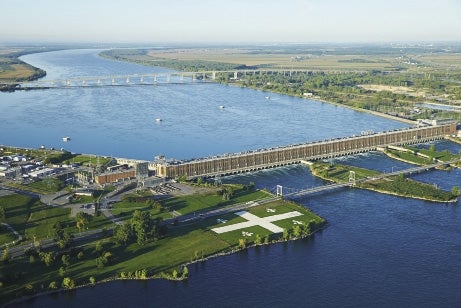Massachusetts is on track to score a renewable energy win over New York, according to Moody’s Investors Service, which said the Bay State will close in “much faster” on the clean energy progress achieved by national leader California.
The two northeastern states are seeking to ramp up their generation of renewable energy through new policies adopted last summer, and Massachusetts will “produce more immediate and certain results” than New York, according to a Moody’s analysis.
Last August, a week before Gov. Charlie Baker signed a law directing utilities to procure 1,600 megawatts of offshore wind and about 1,200 megawatts of hydroelectric power, New York’s Public Service Commission issued an order setting a clean energy standard and requiring that half of the state’s electricity come from renewable sources by 2030.
Moody’s said the new initiatives will speed up the pace of renewable development in both states, but cautioned that if the goals are achieved, the effects on wholesale power markets would be “severely negative.”
“It will depress wholesale market prices and reduce margins for merchant generators that sell their output to the wholesale power markets,” the report said. “In its most extreme form, these environmental-driven initiatives, supported by subsidies, could force the New York and the New England power markets to become similar to that of California – a broken and distressed market for conventional generators operating under a merchant business model (i.e., selling to the wholesale market without the protection of long-term contracts).”
However, utilities in Massachusetts and New York — Eversource Energy, Consolidated Edison, National Grid USA and Avangrid Renewables Holdings — could stand to benefit from building out their renewables operations, Moody’s said.
“Unlike the challenges presented for merchant generators, renewable development presents credit positive growth opportunities for some of the largest regulated utliities in both states,” said Toby Shea, a vice president and senior credit officer at Moody’s.
California produced 24 percent of its power from solar, wind and biomass in 2015, up from 9.5 percent in 2006, according to Moody’s, which found much slower renewable energy growth in Massachusetts and New York. The report said Massachusetts had about 4 percent of its generation from non-hydro electric renewables in 2015 and New York had 5 percent, both up from 2 percent in 2006.
The two eastern states “do not have good track records in meeting their states’ renewable portfolio standards,” the report said, but Massachusetts has performed closer to its targets than New York and will be able to produce results more quickly because its new targets are legislatively mandated and its initiatives are tied to carbon emission reduction goals.

